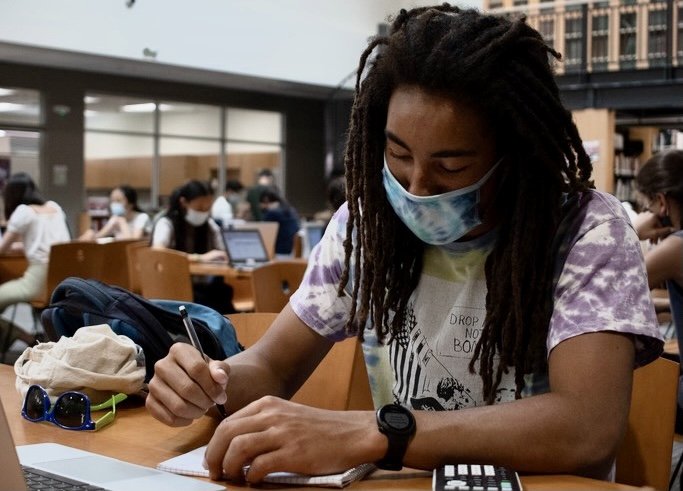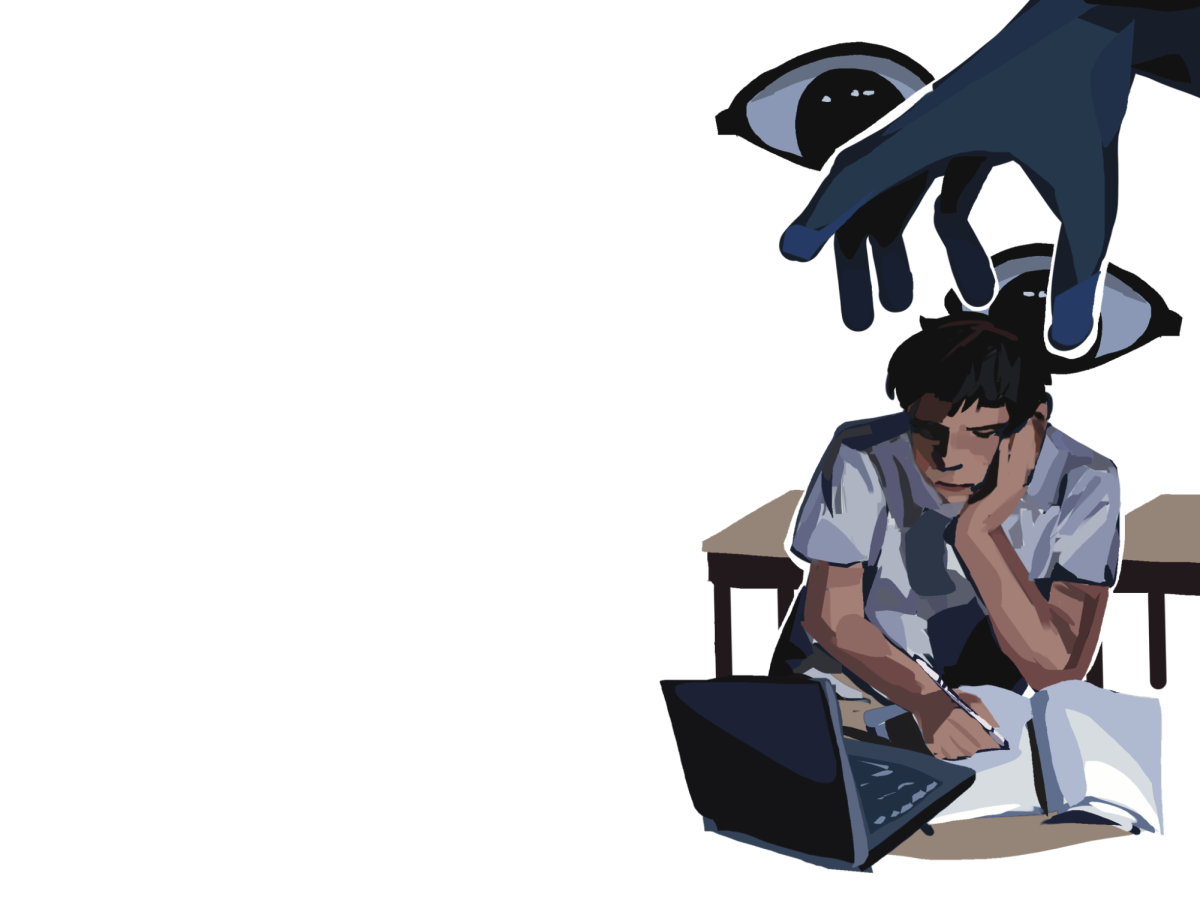In an attempt to reduce student academic stress and clarify teacher expectations, the Board of Education approved a revised homework policy in August that prohibits summative assessments and assignments being due or assigned on seven-period days. The policy also made several revisions that reinforce previous guidelines as mandatory policies, including expectations for students’ homework loads by grade levels and the prohibition of required summer homework assignments as well as late penalties for homework.
Board President Ken Dauber said the school board approved these changes partially in response to the new bell schedule to prevent test and homework stacking on Mondays.
“One of the benefits of the block schedule over having every period every day was that students couldn’t face a situation where they had homework in all their classes, and also tests and projects due on in all the classes on the same day,” Dauber said. “But now, if we have a day that has all periods, then we need to make sure that students aren’t facing a situation where they can have a homework overload on that day. The weekend is a lot better if you don’t have homework hanging over you.”
Dauber also said the revisions to the policy are meant to provide clarification after Superintendent Don Austin received questions from school sites and individual teachers about previous homework policies.
Dauber said he thinks many students have been assigned more homework than allowed in the original policy, which was approved in 2012, but he is optimistic that compliance will increase.
Dauber also said communication with teachers is important during what he anticipates will be an adjustment period.
“As I understand it, Dr. Austin made the changes to the administrator regulation and then circulated those to teachers, and I’m sure it’s been brought forth and staff meetings and so on,” Dauber said. “So my sense is that the district is good at communicating when there’s an important change like this (so) that everybody understands that the expectations are correctly set.”
Economics teacher Grant Blackburn isn’t so sure, though. Blackburn said there was no such staff meeting at Paly and the only meeting he knows about was an optional meeting with Principal Brent Kline on August 25.
“When I went to the meeting with the principal, there were only four other teachers there plus the principal and the discussion that we had, it didn’t feel like we were problem solving. It felt like we were venting,” Blackburn said. “It felt like there was some pushback between us in the administration … We haven’t had a chance to talk about this policy, which was just given to us. We haven’t had a chance to talk about the implications and all of that kind of stuff.”
Blackburn also said that since the policy was released weeks after the start of the school year — and only a week before Back to School Night — adjusting his curriculum was particularly difficult.
Blackburn said he would have preferred more teacher input to have been considered for a policy that he believes would normally be decided at the teacher level, not at the district level.
“Every teacher’s philosophy and personality is different, and when you have a policy that is misaligned with a teacher’s personality and style, then that’s going to make it hard for the teacher to be truly effective,” Blackburn said. “I do think there’s going to be a lot of collateral damage.”
He said he’s especially concerned with a specific part of the policy — no repercussions for late work.
“I personally believe that sometimes we need to require people to do things that might be painful in the short run because unless they do it and go through that process, they won’t learn the value of doing so,” Blackburn said. “I’m very focused in terms of what I give to my students and why I give it. So if a student doesn’t turn their homework in on time, and we’re going over the assignment, or we’re using the assignment that you just completed in class, and you haven’t done it, it’s not really going to be as valuable for you if you do it later on.”
While Principal Brent Kline said he understands the concerns of teachers related to the new policy, he said the revised homework policy will maximize students’ time.
“I’m a musician at heart, and you practice what you don’t do well,” Kline said. “If you already know how to do it, why practice that when you could be doing something else and practicing something that you don’t know? And so I think that this is a great opportunity for all of us as an entire community that we really reflect on our practices, including mine as a principal, and making sure that we’re doing the best for all of our students in the time that we have during the day and after school.”
Kline said he plans to meet with the instructional leaders of every department to continue to brainstorm best practices surrounding homework and get more feedback. He said he’ll also visit classrooms, talk with teachers and have staff share what works related to homework at staff meetings or during professional development time.
Next week, Kline said he plans to facilitate a student forum of about 16 students to hear what they think student engagement should look like, what the purpose of homework is and how homework should be treated.
“It’s not going to happen overnight. People are going to have to readjust what they’ve always done or what they think needs to be done,” Kline said. “I think that there’s a lot that we’ve learned as we survived the onslaught of the pandemic, and then we continue to work through that, so I think we need to use what we’ve learned and see what’s even more effective than what we’ve always been doing.”















